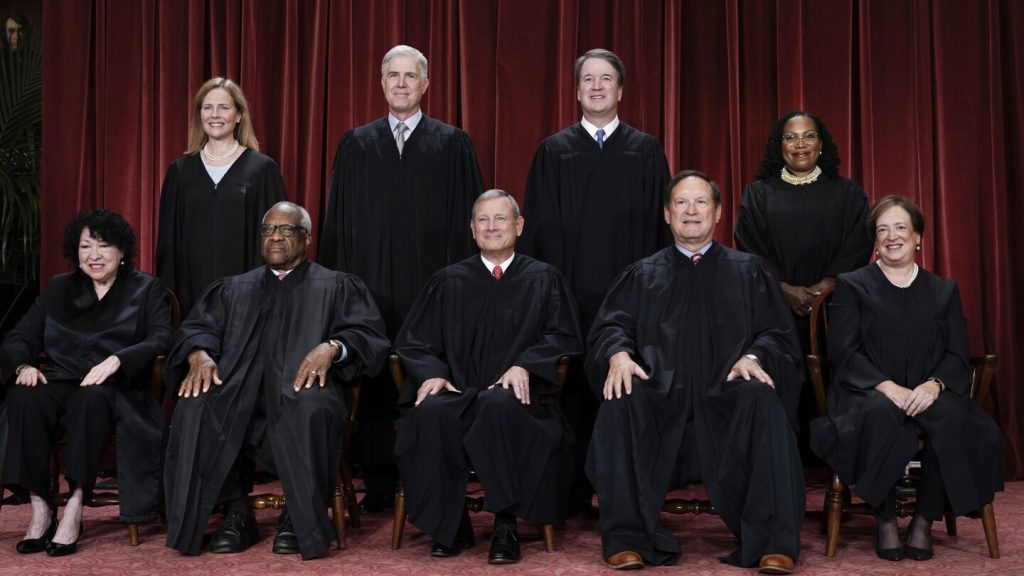Several Supreme Court justices disclosed significant financial information in their annual financial disclosure reports. Justice Clarence Thomas acknowledged more travel paid for by Republican megadonor Harlan Crow, including a trip to Bali and lodging in Sonoma County. Justice Ketanji Brown Jackson reported an $900,000 advance for her upcoming memoir and received tickets to a Beyoncé concert. Justices Brett Kavanaugh, Neil Gorsuch, and Sonia Sotomayor also reported income from book deals, with Kavanaugh’s book expected to address his contentious confirmation hearing. Chief Justice John Roberts earns the highest salary among the justices, at $312,200.
Justice Samuel Alito received an extension for his report, as he does most years. Jackson, the first Black woman on the Supreme Court, signed a book contract shortly after taking her seat. Her book, titled “Lovely One,” is set to be published in September and is expected to rival the advance paid for Sotomayor’s memoir. Only three justices, Roberts, Alito, and Elena Kagan, have not signed book deals. Justice Amy Coney Barrett reported receiving $425,000 for a book deal signed in 2020.
The justices’ financial disclosures provide a glimpse into their earnings, but do not include the value of their homes or spouses’ salaries. The code of ethics adopted by the justices lacks enforcement mechanisms, and they are not required to disclose the value of travel, food, and lodging provided by others. Democratic lawmakers are pushing for legislation that would require the Supreme Court to adopt a binding code of conduct and allow for investigations of alleged violations, but passage is considered unlikely in the current political climate.
Only two justices reported receiving gifts in their disclosures, with Thomas receiving photo albums and Jackson receiving artwork for her office, in addition to the Beyoncé tickets. The disclosures also reveal the justices’ different sources of income and potential conflicts of interest. The varying financial disclosures raise questions about transparency and accountability within the Supreme Court, especially regarding the justices’ interactions with donors and outside income sources. The disclosures highlight the need for clearer guidelines and oversight mechanisms to ensure the integrity of the judicial branch.


